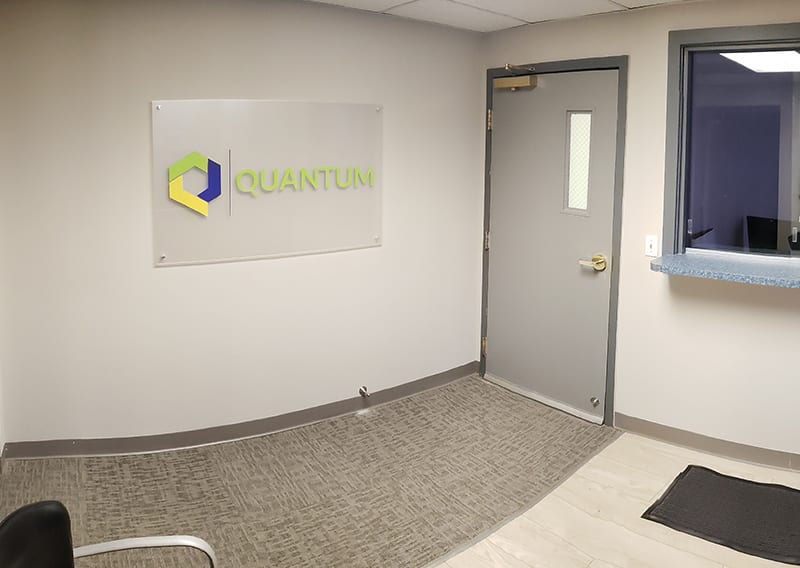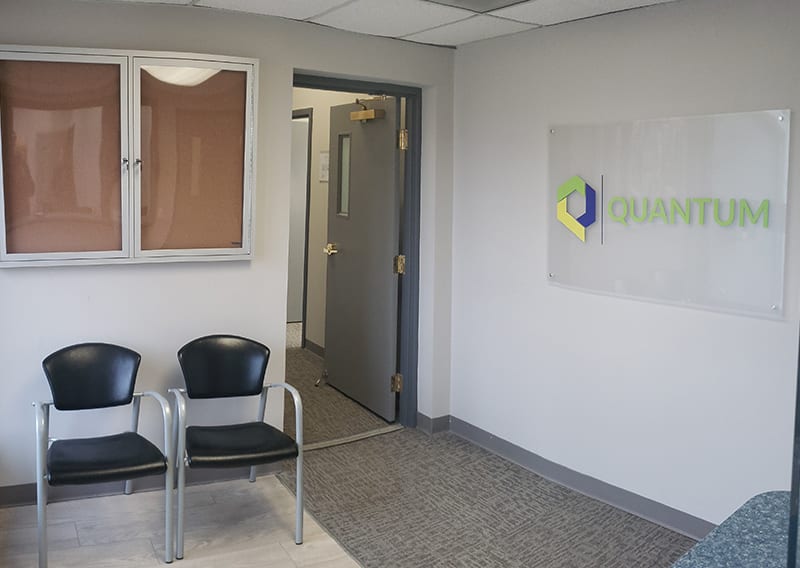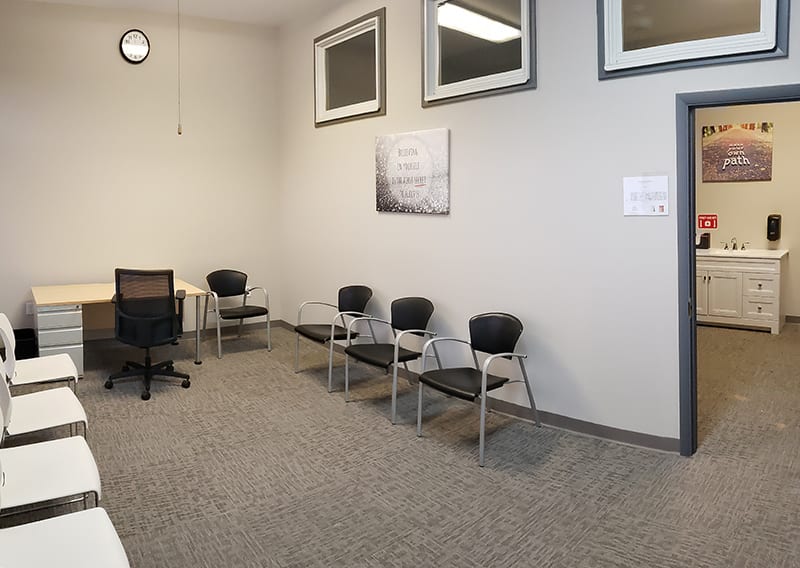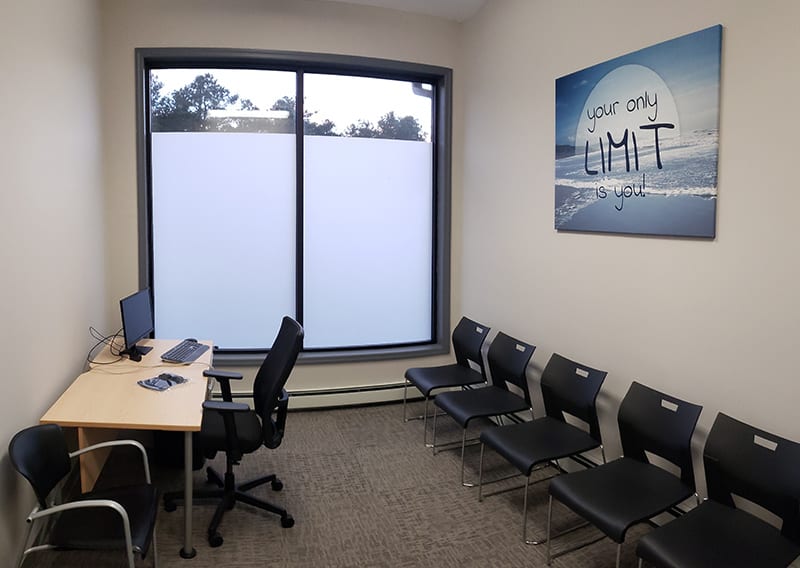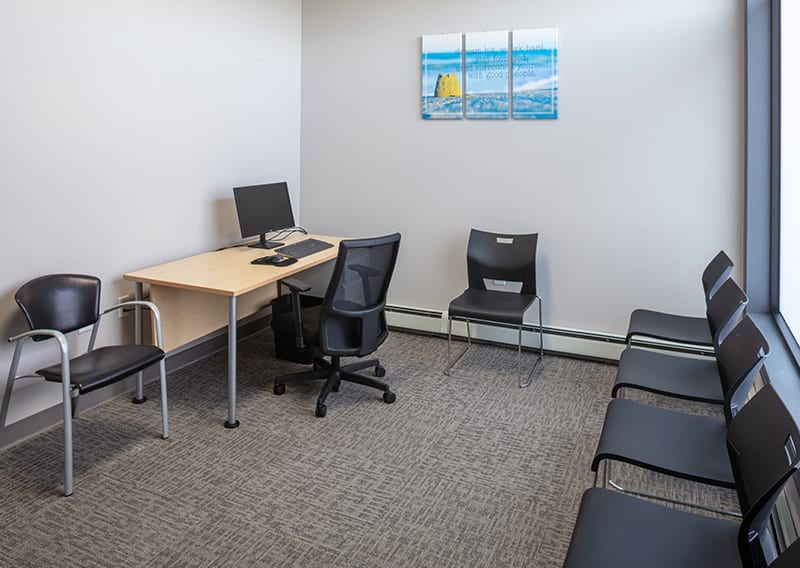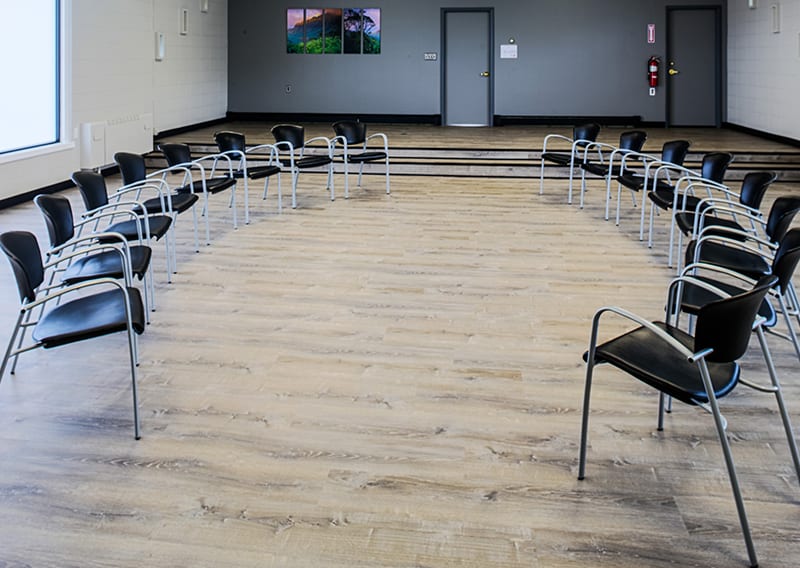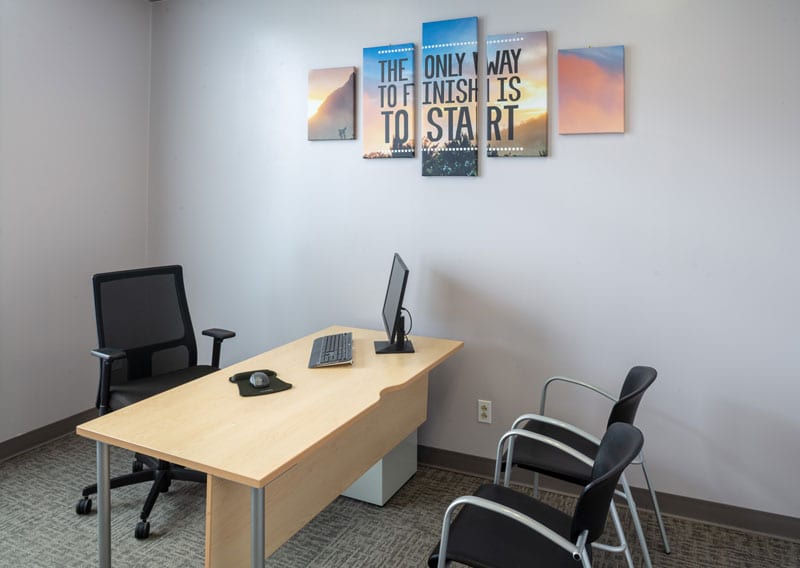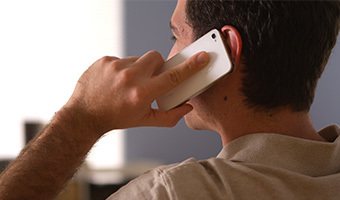
Photo Gallery
Click photos to enlarge
Are You Ready to Begin Your Journey to Recovery?
You could be completely covered. Verify Your Insurance Today.
The Quantum
Process Outpatient Rehab NJ
1. Make the Call
Contact our Quantum Team at
(609) 993 – 0733 to get started.
2. Complete
Your Intake
This streamlined process includes a series of questions and discussion of your unique needs and goals.
3. Get the Best Care Team Possible
After your intake, you’ll meet your Care Team, a group of amazing professionals dedicated to helping you make recovery reality.
4. On-Going Support
After you meet your Care Team, you’ll start to receive treatment based on a Care Plan that’s designed to help you achieve and sustain your recovery.
- Drug Rehab in New Jersey
- Additional Therapies & Addiction Treatments Available
- Does My Insurance Have Coverage for Rehab?
- Cognitive Behavioral Therapy
- Dialectical Behavioral Therapy
- Rational Emotive Behavioral Therapy
- Dual Diagnosis Treatment
- EMDR
- Relapse Prevention
- Life Skills Training
- Vocational Training
- Group Therapy
- Experiential Therapy
- One on One Therapy
- Family Therapy
- Trauma-Informed Therapy
- Physical Fitness
- Off-Site Activities
- Holistic Addiction Treatment in New Jersey
- Why Choose Quantum Behavioral Health?
Drug Rehab in New Jersey
Quantum in New Jersey has different drug and alcohol rehab types available. Each plan is customizable to you depending on factors like your level of addiction, whether you have a mental health issue, and how much care you need. It also depends on the types of therapies you best respond to and what your daily schedule is like. The three main types of treatment programs at Quantum are:
Partial Care (PC)
The partial care program is the most intensive program we offer, with a minimum of 20 hours each week of treatments and therapy that occur during the day, so you will likely not have a full-time job while in partial care. You will come to the treatment center to receive treatment for your substance use disorder alongside any mental health issues you may be facing.
Intensive Outpatient Program (IOP)
Intensive outpatient care is a more flexible option for people without a dual diagnosis who want to go back to work or school and need to have their rehab treatments in the early mornings, evenings, or weekends. In the Quantum IOP program, you will still receive a minimum of nine hours a week of group and individual therapy, with access to other treatments and healthcare as needed.
Outpatient Program (OP)
Our outpatient program is for people who feel ready to move on from the IOP, but still want to remain connected to the structure and support our treatment center provides. You will receive fewer than nine hours of therapy and treatments, but you will have the option to join 12-step groups in your area and meet up with sober peers. Your comfort and overall progress determine your level of care, and you can always re-join an IOP if you feel you need more structure when times get tough.
Recovery from drug addiction is not always linear, and you may hit a few bumps along the way. That is why a structured treatment plan, including outpatient care, is typically the best way to remain in recovery. We will be there for you with support, care, and strategies to keep you on your recovery journey.
Additional Therapies & Addiction Treatments Available
Because we are an integrated treatment center at Quantum Behavioral Health, we believe that working on the whole person is the key to treating addiction. Alongside scientifically proven western medicine and traditional therapy approaches like cognitive behavioral therapy, we also provide a variety of holistic therapies for mental and spiritual wellness.
Does My Insurance Have Coverage for Rehab?
If you have health insurance, then it may cover some, if not all, of your addiction treatment. It depends on the insurance company, your policy, and the treatment center you enter. At Quantum, we can help you determine if you have insurance coverage or if you will need to pay out of pocket and can provide you a quote if you wish. We will work with you so you can get the help you need, plan your treatment, and understand the costs.
Cognitive Behavioral Therapy
One of the most popular forms of addiction treatment, CBT focuses on modifying behaviors and thought patterns, affecting change in a person’s outlook, and treating the underlying causes of addiction. This therapy modality helps people understand why they do what they do and then helps them find alternative coping mechanisms. It also treats mental disorders, including anxiety, depression, and PTSD.
Dialectical Behavioral Therapy
DBT works on the psychosocial aspects of addiction. This process will help you understand the social and emotional reasons for your substance use disorder. You will learn to replace your negative behaviors with positive actions. Mindfulness, distress tolerance, and emotional regulation are taught in DBT.
Rational Emotive Behavioral Therapy
REBT focuses on the “rational” mind, stating that there is no such thing as a good or bad situation; it only depends on how you look at it. Perception can change everything. REBT challenges patients on their own thoughts, emotions, and responses to triggers while providing healthier ways to handle difficult situations.
Dual Diagnosis Treatment
Dual diagnosis is the name for a treatment program that combines addiction treatment with mental health care. Many people who abuse drugs and alcohol do so because they are trying to cope with the distressing symptoms that come with mental health issues. Treating mental disorders alongside substance use disorders in one integrated program is more effective in breaking the cycle. The most common mental health issues associated with addiction are:
- Depression
- Generalized anxiety disorder
- Social anxiety disorder
- Panic disorder
- Bipolar disorder
- Post-traumatic stress disorder (PTSD)
- Attention deficit disorder (ADD)
- Attention deficit hyperactive disorder (ADHD)
- Borderline personality disorder (BPD)
- Eating disorders
- Schizophrenia
- Suicidal tendencies
Outpatient addiction treatment with dual diagnosis will allow you to maintain any responsibilities at home and also give you the ability to lean more on your friends and family for love and support. It will help you without sacrificing your career or education or missing out on essential obligations. You can live independently as you safely navigate your mental health and addiction treatment.
EMDR
Eye movement desensitization and reprocessing (EMDR) is a type of therapy that allows patients to reprocess psychologically disturbing or traumatizing thoughts and images into everyday memories using dual awareness techniques. The brain sometimes becomes “stuck” on specific traumatic incidents, and by using eye movements or tapping/tones guided by a therapist, you will be able to process your trauma as some parts of your brain are distracted.
Relapse Prevention
Because addiction is a lifelong disorder that can be managed but never goes away completely, it is best for everyone in recovery from a substance use disorder to know what to do when times become difficult. When you feel a relapse coming, who to contact, where to go, and having coping strategies available to you is the best way to stay on track when tempted to start using drugs or alcohol again.
Life Skills Training
Alcohol and drug use can damage your health and mental well-being and stunt your growth as an adult in society. There are so many skills we pick up along the way that may seem basic to many people, but if you missed out on learning them due to substance abuse, it might feel out of reach. With life skills training, you will get caught up on the basics, teaching personal hygiene practices, cooking and cleaning for yourself, and managing a budget to live independently after rehab.
Vocational Training
Financial independence comes from getting a job and becoming a reliable employee. Substance use disorders could become a barrier to employment, as many people likely have not made career choices their number one priority if drugs were involved. A vocational training program will teach you to create a resume, find a job, and practice interviewing to become self-reliant. A bonus to getting a job is that along with making your own money, you will have a more structured day filled with purpose, and you will be able to practice social skills and create opportunities to make new friends.
Group Therapy
The term ‘group therapy’ encompasses a wide range of programs. The one thing they have in common is they have a group of patients who get together to work on a specific issue or discuss a particular topic or theme. Group therapy allows therapists to address multiple patients at once to spread information and ensure everybody understands.
It provides a supportive environment with empathetic peers with whom you can brainstorm and learn new perspectives and strategies. You will also work on your communication skills through talking and listening and gain new social skills by empathizing, brainstorming, working together, and supporting others.
Group therapy can also help you realize that you are not alone in your struggles, and there are people out there who get where you are coming from, even when it comes to drug use, alcohol addiction, and mental illness.
Experiential Therapy
As the name suggests, experiential therapy involves an experience (like creating art, listening to music, going outdoors, working with animals, etc.) as you talk about past trauma as guided by a therapist. It will help you reframe your emotions as you experience positive or neutral experiences while talking about deep or disturbing thoughts and issues, as perception determines behavior.
One on One Therapy
This type of therapy is usually shown on TV shows with the patient lying on a couch as their therapist asks questions and takes notes. In reality, one-on-one therapy, or talk therapy, is when you get together and talk with your therapists about things that are bothering you, feelings of unhappiness, or aspects that are overwhelming and interfering in your normal life. You and your therapist will have a conversation and help you figure out the causes of your addiction, giving you coping skills that will help you improve your quality of life and reduce stress as you recover from addiction.
Family Therapy
Family therapy is different for every family, depending on your needs and issues. It will help your family work through trust issues, guilt and shame, problematic behaviors, and stressful situations. You will improve communication, work on problematic habits and behaviors like codependency and enablement, strengthen your bonds, and heal old wounds together. Your loved ones may also use family therapy to learn more about your addiction and how best to help you recover.
Trauma-Informed Therapy
Trauma-informed therapy means that all caregivers know how to recognize the signs of trauma and how to handle it. This involves practices like:
- Open communication and transparent decision making
- Answering all your questions thoroughly
- Patient empowerment and collaboration
- Building and maintaining trust
- Obtaining your consent before moving forward in any treatment
Physical Fitness
Exercise is good for your self-esteem, health, and mental well-being. Establishing a routine at the gym, joining fitness clubs or classes, or joining a sports team will also structure your days, distract you from drug cravings or unhealthy urges, and put you in a position to meet new people.
Off-Site Activities
The days in rehab can be a lot. There is introspection, hard work, and plenty of emotional pain to work through daily, and sometimes a person needs a change of pace. If you are in rehab, an off-site activity in a sober place like a nature spot, a local attraction, or a sober gathering may be just what you need to refresh your spirit and give you the fun routine change you need.
Holistic Addiction Treatment in New Jersey
Therapy does not always involve talking about addiction. There are holistic treatments available for substance abuse to help you manage stress, release toxins, regain physical strength, regain your spiritual grounding, build a mind-body connection, and gain a deeper understanding of yourself as a whole person.
Why Choose Quantum Behavioral Health?
If you or a loved one struggles with substance abuse or has an addiction to drugs or alcohol, Quantum Behavioral Health has the addiction treatment programs to help. We know every person who comes in for treatment is a unique individual, not “just another addict.” We will treat you as a whole person, helping you stop substance abuse while simultaneously healing the underlying causes of addiction and treating the behavioral, emotional, and social aspects of addiction. We treat alcohol addiction, drug addiction, and dual diagnosis for co-occurring mental health conditions.
We are a leading drug and alcohol rehab center in New Jersey for addiction treatment, and we offer multiple levels of care including: outpatient rehab, partial care programs, and intensive outpatient programs. These plans are run by caring medical providers, therapists, and other experts in their field, putting your individual needs first. We believe combining evidence-based treatments with holistic care and alternative options for substance use disorders can help our patients achieve long-term sobriety.
At Quantum Behavioral Health, we have licensed and experienced staff through all levels of care who genuinely want to help you heal and grow as a person while you recover from substance abuse. Our facility is welcoming and secure, and we provide the consistent treatment you can count on with as much family and couples involvement as you want.
We make it easy to get into treatment. Choosing Quantum Behavioral health for your addiction treatment will provide you with customized and individualized outpatient treatment plans that are comprehensive and provide you the care you need to get sober.
Through our integrated treatment modalities, we can help you stop substance misuse once and for all as you return to your everyday responsibilities.

